Graham Reid | | 8 min read
Doug Jerebine: Midnight Sun
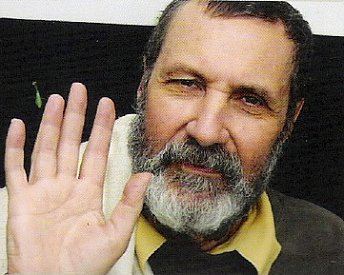
Doug Jerebine sounds both amused and detached about the fact that two days in a London recording studio some 42 years ago have now thrown him into the spotlight.
At 67, and with almost four decades in the Krsna movement as a teacher and respected translator between those two days and now, he hardy sounds like the long-haired young man on the cover of the newly released album from those sessions.
“I had no aspiration [the album] should come out, it was not anything I had aspired to," he says in a measured and gentle voice. "At the time when I recorded it, I would have been happier.
"But I don't want to come across as ungrateful. I am grateful it has come out because it will enable me to play live now."
This is the same naturally gifted Doug Jerebine who could play jazz and rock guitar in the Sixties with the best Auckland had to offer, who studied sitar and became so good he would play for the Indian community at the Gandhi Hall, who headed off for London where he recorded these long lost sessions, was briefly bassist the Jeff Beck Group alongside Rod Stewart, taught Billy TK some of the songs from his original sessions which were then recorded by the Human Instinct, and who then gravitated to the Krsna community in London and finally headed off to India in '73.
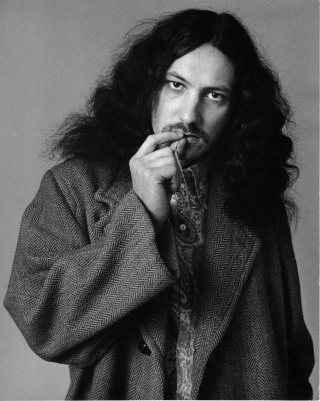 This is also the same Doug Jerebine
whose name was changed for these sessions to Jesse Harper, which
explains why the album -- with excellent liner notes by Nick Bollinger -- now out on vinyl with CD to follow is entitled
“Doug Jerebine is Jesse Harper” on one side, and “Jesse Harper
is Doug Jerebine” on the other.
This is also the same Doug Jerebine
whose name was changed for these sessions to Jesse Harper, which
explains why the album -- with excellent liner notes by Nick Bollinger -- now out on vinyl with CD to follow is entitled
“Doug Jerebine is Jesse Harper” on one side, and “Jesse Harper
is Doug Jerebine” on the other.
And, most importantly, this is the same Jerebine/ Harper who came within a whisker of being signed to Atlantic Record and was spoken about in the same breath as Jimi Hendrix, whose playing style he adopted, equalled and transformed into something of his own.
Yet the Doug Jerebine on the phone from his home in Taumaranui seems bemused that the album has just picked up five stars in the UK magazine Uncut (“rock that easily equals Hendrix's finest moments . . . a real pinnacle of the heavy psych movement . . . this one'll rewrite some history books for good”) and was top of the Mojo office playlist (“our loss, Krishna's gain”).
“Yes, number one in Mojo. What's that about?” he laughs.
“I was not really trying at all to make that album popular, in fact I didn't really care that much for it, but I have to respect what John Baker has done,” he says naming the Auckland rock archivist who has worked to get the album out of the vaults and into the hands of those for whom it has long been a rumour or an expensive bootleg.
“I didn't care for it in the respect that I would like to have done it a lot better when we did do it, and it is something from quite a long way back. I haven't played so much that way, or songs of that nature, for about 40 odd years.
“I never really was a singer although my voice has a certain timbre, and I wasn't pleased with my singing on a lot of those tracks. I have a keen sense of pitch and I'm well ware of what a good singer is . . . and I know I'm not one.
“So I felt it was not the best I could have done. But I have to respect the fact that so many people adore that and they will want me to sing those songs in public.”
Which he is doing again with his World Band (three drummers and a percussion player) which is a continuation of the flexible group he founded in the early Seventies . . . and which has a worldwide membership of around 200 players.
Yes, Doug Jerebine is different, alright.
Jerebine has had a full and fascinating life from growing up in the tiny town of Tangowahine, to playing clubs in Auckland like the Embers and the Picasso (“very few white people came to the Picasso, there were the Maori and Samoan wars there”) to his life as a monk and translator of scripture in India.
But it is the story of those five years -- and specifically now, the two days -- in London which has come back into the frame. His friend Dave Hartstone (of the Four Fours who changed into the Human Instinct in London) arranged the session at London's Deram studios with drummer Dave Preston who had been in the Merseybeats and the British psychedelic band Nirvana.
Jerebine played all the other instruments and the album is a masterpiece of multi-tracked guitar parts and his slightly disembodied vocals.
“It was a couple of days and I just put all the tracks down. It was quite fun but also quite a strain. But there was a lot of good energy and that was how I used to sing and play in clubs . . . although they were mostly not my songs [in the clubs] -- they were Jimi Hendrix, Grateful Dead and so on -- and I adapted that way of playing.
“Some say Dave Hartstone bullied me into doing that. It wasn't so much that he bullied me it was more, 'You must do this, it's a terrible waste if you don't'. He pressured me affectionately.
“My thrust was, and still is, for live music, but I did compromise and recorded. And by doing it, suddenly it has made me something of a famous fellow now, " he laughs.
"I hadn't counted on that. Fame is something I have always run away from, always.”
But it briefly beckoned when Ahmet Ertegun of Atlantic heard Jerebine's music (or more correctly, Jesse Harper's music) and was keen to sign a deal. Rumour has it that accounts about some of Hartstone's less salubrious friends leaked back to Ertegun in New York and he went cold on the deal. Jerebine/Harper and Hartsone flew to New York, but Ertegun didn't show for the signing.
Another possible deal a little later fell through when Jerebine – by then embracing the Krsna consciousness movement – objected to the cigars and whiskey being offered. He walked out.
But Jerebine says even at the time he had no wish for fame based on a big selling album. If it came through his live work he felt that was in the natural order of things, but “being big through a recording? No. And that's why even now this is slightly anathema to me.
“People are saying 'Congratulations'
and I honour and respect that, and the benevolence of John Baker.
People may say he's a promoter and he's in it for the money, but I
know him as a very benevolent character who will get me places to
play.
“He's a very special person and because he loves what I did on those recordings he has sacrificed so much for me. So I have to respect that and will play that for people, although for my own preference I would want to play something slightly different.
“But I will try my utmost and I must honour and respect the situation that so many people know know this album.”
Jerebine's taste runs to Indian classical music (you can hear elements of Indian microtones in places on the album) and he is clearly a very different kind of “rock star”. He speaks in the manner of philosopher/teacher and would prefer to play in places where alcohol is not sold (“I am not talk about prohibition, I simply prefer a place not alcohol driven, it has a little more gravity and people aren't running around partially intoxicated”). That is in part because he saw the attrition that drugs and alcohol had on his generation in the late Sixties.
“And I think there still is. And there is no real good reason for it. If my word became of any value to young folk the world over I advise them to have a crack at clean living and loving. Rather, I beg the young folk.
“It's a hard world but it's not all that hard to have a few days living in a clean way without intoxication of any kind, just try to moderate a bit.
“If you say to someone in the western world to stop drinking they think you are mad. So you can't really do that. So all you can say is, 'Hang out for a little while without it and see how you feel' and later on' be moderate'. That's all you can do.”
As a musician, he prefers not to rehearse because he feels he should know this music and it should be fresh and spontaneous, his passing references in conversation include jazz pianist Oscar Peterson, Bob Dylan, Chuck Berry and Hindustani classic music, and later he notes that on his wall he has he images of Lord Krsna and St Francis of Assisi.
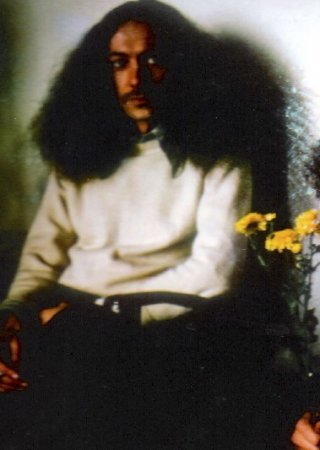 So does he remember that young man with
long hair who made these recordings?
So does he remember that young man with
long hair who made these recordings?
“Yes and he's not much different now. Obviously he's had a lot more experiences after 42 years and I think he's a little more courageous now. I say that not wishing to be arrogant. That means it is probably a good thing that it has come out so late and at this time.
“I think he was ambitious but he didn't know how to express it. I think it was a good thing he went to India and didn't go completely of the rails, as almost all of us tended to.”
Jerebine says that during his years as a Krsna he was always independent and had positions of responsibility so “I was not so much a disciple and was always hailed as a teacher”.
“Within the first two years I was accepted as a monk, and they were not considered students but masters. I was ostensibly strict as a practitioner but the ideology is if you come to that state of monkhood you are no longer a practitioner, you have attained what it is you were meant to have attained.
“Today I am not a practitioner of any faith, and at the same time am a respecter and practitioner of them all. I respect, rather I adore, the so-called faith of Lord Krsna, Lord Christ, Lord Shiva, Lord whoever, Jehovah, Buddha, Rama, Allah . . . I respect all but am not a practitioner of any one of them, but of all and not one.”
And is he a musician? Is that a description he accepts?
“Not at all. I've always aspired to be a good musician and at times it seems I am something of musician. But if I listen to the music of those I adore, then sometimes I can touch a little on what they are doing. And even they at times might say, “Yes this guy Doug, or whatever his name is, yes he is a musician'.
“I respect that, but [calling myself a musician] isn't the first thing that comes to my mind. I am surrounded by instruments and take solace in music and I have met the greatest and most remarkable people through music. So I have a deep respect for that and I always aspire to a deep respect for the great musicians.”
And Doug Jerebine, the former Jesse Harper and Maharaj Om, is loathe to accept any description.
“I don't and I wouldn't. There are prescriptions and ascriptions, but how much can one describe oneself? It is not an easy thing for anyone.
“I aspire to contribute towards love, peace and happiness in the world . . . and when I speak of the world I speak of not just the Earth planet but of the galaxies. I speak of the universes. I find we think so much about this planet, but even the stars we see are a part of our very existence here.
“So people ascribe to me as being something of a cosmic teacher as well, but that is also part of what a musician does.
“People look to musicians almost as gods, they revere them. But musicians quarrel and are angry with one another and we must overcome all those things. And we are destroying ourselves with intoxication. But there is no need of quarreling and intoxication.
“We – and I also mean this country Aotearoa – have everything to give the world.”
Interested in more like this? Then start at this place.

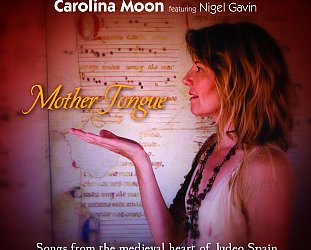


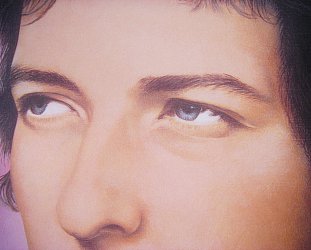
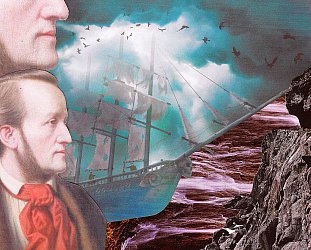

Andrew Schmidt - Feb 27, 2012
Meeting Doug/ Maharaj with John on Waiheke Island in the first years of the last decade was one of the most uplifting interviews I have ever sat in on. After nearly eight years wrestling with the history of the 1960s music scene in New Zealand he was quite literally a breath of fresh air. His spirituality and peace touched me profoundly and made a real difference to my life in the coming years. It was also a wonderful life story and one that ended well after hearing about so much of the darkness that descended on his generation which Doug alludes to here. His sister Anna lived in Paeroa and when she read that story online she thanked my Mum for having it told. It's nice to greet a new week with a whole pile of new pespective and thought on a very special (and humble) man and musician. Thank you Doug and Graham.
SavePhilip FryerBH - Feb 29, 2012
I well remember enjoying Doug's band
Saveat was called the Pow Wow club,in what used to be the Oxford theatre,it was just around the corner from-The Beatle Inn,but have been unable to get this,Jb's say awaiting it to be pressed,so I have it on order -but WHEN will it arrive,& when & where will he do live show's!
Graham Reid - Feb 29, 2012
The vinyl album is available through Real Groovy but there will be a CD release with extra tracks (three by The Brew, One by Jesse and one new one with the World Band)
SaveIt is expected the CD will be available at the show (Kings Arms, mentioned in the article) as will the vinyl, and Doug will be happy to sign them.
- Graham Reid
post a comment